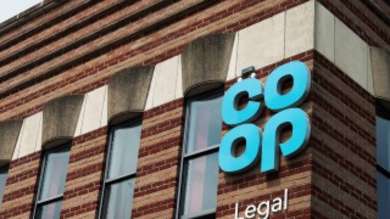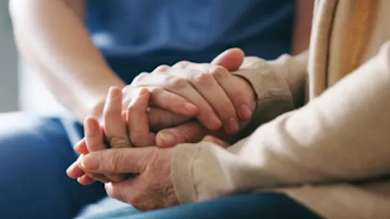
GP negligence claims

If you have suffered an injury because of a mistake made by a GP, our medical negligence solicitors can help.
Doctors who work in General Practice (GPs) are an essential part of the NHS. They generally provide excellent care.
Sometimes, GPs make mistakes. This can lead to either an avoidable injury or a worse outcome for the patient.
Mistakes that can lead to a GP negligence claim
You might be able to make a GP negligence claim if you have become ill or injured because your GP failed to:
- examine you
- refer you to more specialist clinicians or surgeons
- request appropriate tests
- act on the results of tests they have requested
- recognise or diagnose a medical condition despite obvious symptoms being present
- review medication
You might also be able to make a claim if your GP:
- performed a surgical procedure that they didn't have the skill to do
- prescribed inappropriate drugs or made other prescription errors
If you feel that a GP or doctor has been negligent, you should speak to a Co-op medical negligence solicitor. They can review the details you provide and offer initial legal advice, free of charge.
The GP negligence claims process
Free initial assessment of your case
When you contact us, our specialist team will provide a free, no obligation assessment of your case.
Gathering evidence
If we take on your case, your medical negligence solicitor will gather the evidence and contact the person or organisation you are bringing a claim against (the defendant).
Expert reports
If the defendant does not admit fault, your solicitor will instruct independent experts to prepare reports on your case.
Valuing the claim
Your solicitor will work out how much compensation you should get based on the impact the negligence has had on your life.
Recovering compensation
Your solicitor will start negotiations with the defendant. The next steps will depend on the defendant’s response. If appropriate, they might seek to settle the claim at this stage.
No win no fee GP negligence claims
When we take on your claim, there will be no nasty surprises. Our no win no fee agreements mean that if your claim is unsuccessful, there is no financial risk to you as all your legal fees are covered.
This is done by entering into and complying with the terms of a no win no fee agreement. We'll also ask you to take out and comply with the terms of an After The Event (ATE) insurance policy, when appropriate.
GP medical negligence case example
The GP Negligence case below (not dealt with by Co-op Legal Services but reported in a legal database**) demonstrate how Medical Negligence Solicitors can work to secure compensation and rehabilitation support for their clients.
The case of Mr O
Mr O was 42 years old when he noticed a small red mark under his right eye. In July 2007, he visited his GP who diagnosed a skin infection and prescribed a cream (Fusidic Acid). Mr O revisited his same GP the following month as the red mark had not improved. On that occasion, the GP prescribed antibiotics and no follow-up was arranged.
By April 2008, Mr O had developed 2 noticeable scabs under the eye. He revisited the GP surgery and had a consultation with Dr Y. Dr Y prescribed topical cream and did not arrange any follow-up.
Between October 2008 and September 2009, Mr O revisited the GP surgery on 4 occasions. On each occasion he had a consultation with Dr R. Dr R diagnosed a skin infection and prescribed antibiotics, a skin wash as a last resort and then a referral to a dermatologist.
In November 2009, Mr O revisited the GP Surgery and had a consultation with a 4th GP. The GP, noting the previous use of antibiotics, advised that Mr O should be referred if the infection did not clear up over the next fortnight.
In January 2010, Mr O revisited the GP surgery and had a further consultation with the 4th GP. The GP diagnosed chronic conjunctivitis. A swab was taken and sent off for analysis. The swab was later reported as being satisfactory.
In February 2010, Dr Y referred Mr O to Ophthalmology.
The Ophthalmology consultation took place in March 2010. The ophthalmologist immediately suspected basal cell carcinoma and ordered an urgent biopsy. The biopsy, in April 2010, confirmed basal cell carcinoma.
Mr O underwent successful surgeries in August 2010 and January 2011.
Mr O instructed Medical Negligence Solicitors to investigate whether there had been an unacceptable delay in diagnosing the basal cell carcinoma. His Solicitors’ initial investigation revealed that there had been a delay in diagnosis which had resulted in him requiring more aggressive surgery causing a greater cosmetic deformity, compromised eyelid function, inflammation, multiple surgical procedures and psychological distress.
Compensation Awarded
The GP paid Mr O medical negligence compensation of £35,000.
** Case reported in the Personal Injuries Quantum Database of LexisNexis.
About General Practitioners
In the medical profession, a General Practitioner is a medical doctor who is often the first point of contact for patients in their local community. Their role involves caring for the health of the whole patient, this combines physical, psychological, health education and social aspects of care.
During a patient’s consultation with a GP, the GP will try to identify any problems at the earliest stage. These problems are incredibly varied and might include infection, cancer, diabetes, asthma, kidney disease, cardiovascular disease, deep vein thrombosis, brain haemorrhage, stroke, ulcers, fractures, testicular torsion etc.
GPs main responsibilities include:
- treating patients with a variety of medical conditions
- prescribing drugs
- providing vaccinations
- running clinics, for example diabetes and asthma clinics
- performing minor surgical procedures
- referring patients to hospitals and other services for urgent or specialist care
- checking test result and advising on next steps
- signing death certificates
- certifying fitness to work
GPs usually work in medical practices. The medical practice team will normally include nurses and healthcare assistants. In addition, practices usually work closely with health visitors, midwives, mental health services and social care services.
About Co-op Legal Services
As part of the largest Co-operative organisation in the UK, Co-op Legal Services works to ensure that our clients receive the best legal advice and support services available from our teams of personal injury and clinical negligence solicitors, legal executives and staff.
We are regulated by the Solicitors Regulation Authority (SRA) and several of our Personal Injury Solicitors are members of the Association of Personal Injury Lawyers (APIL).
Co-op Legal Services has over 800 staff working in different businesses with offices in Manchester, Bristol, Stratford-upon-Avon, Sheffield and London.
Related articles


